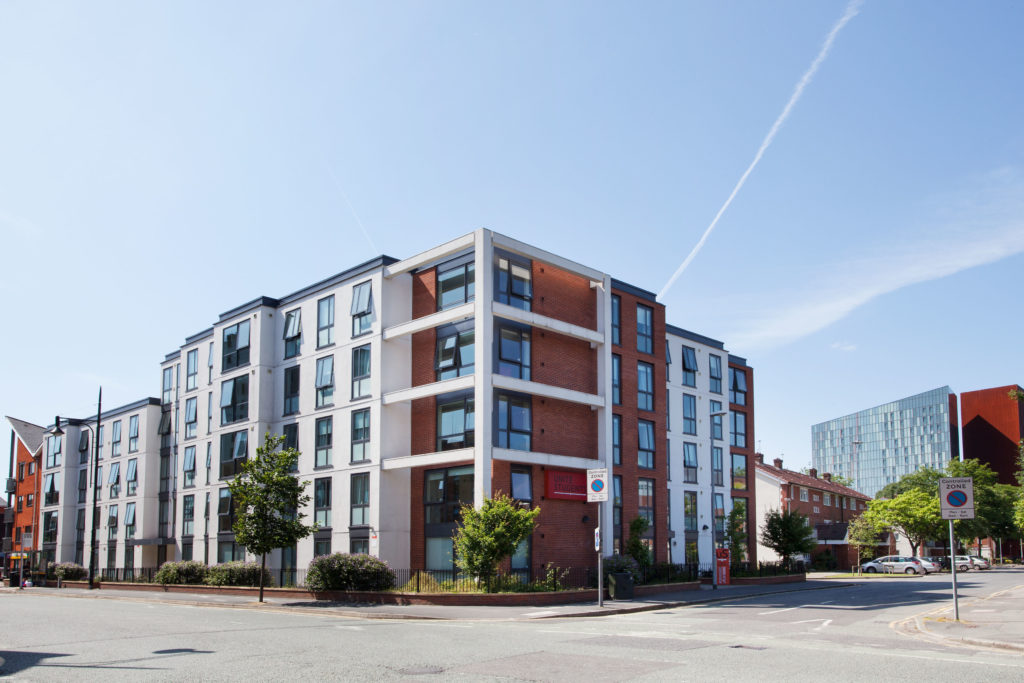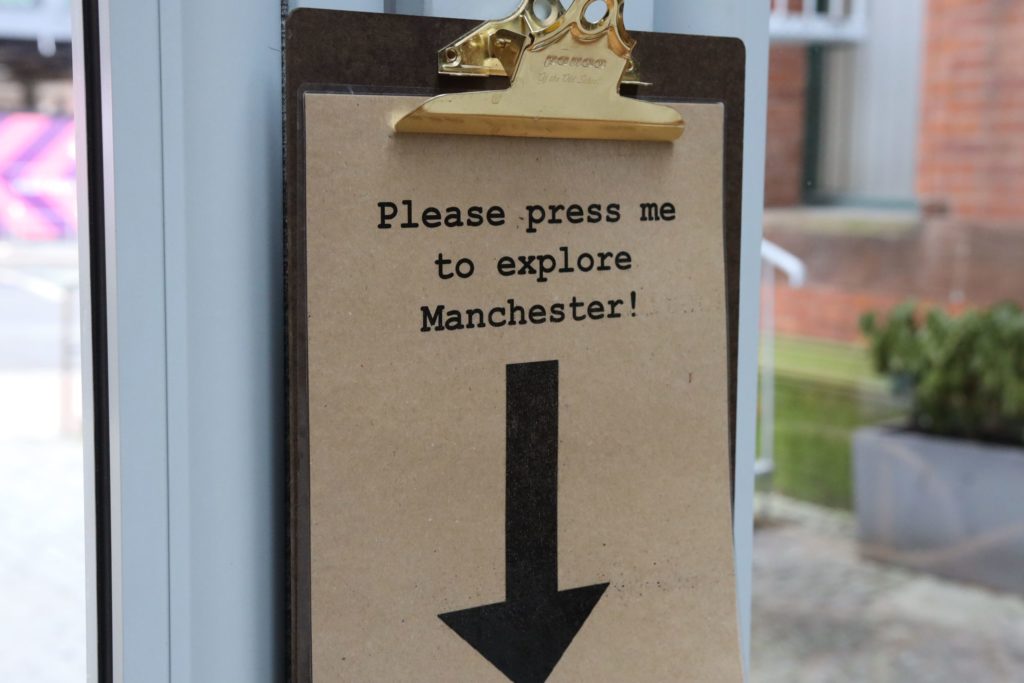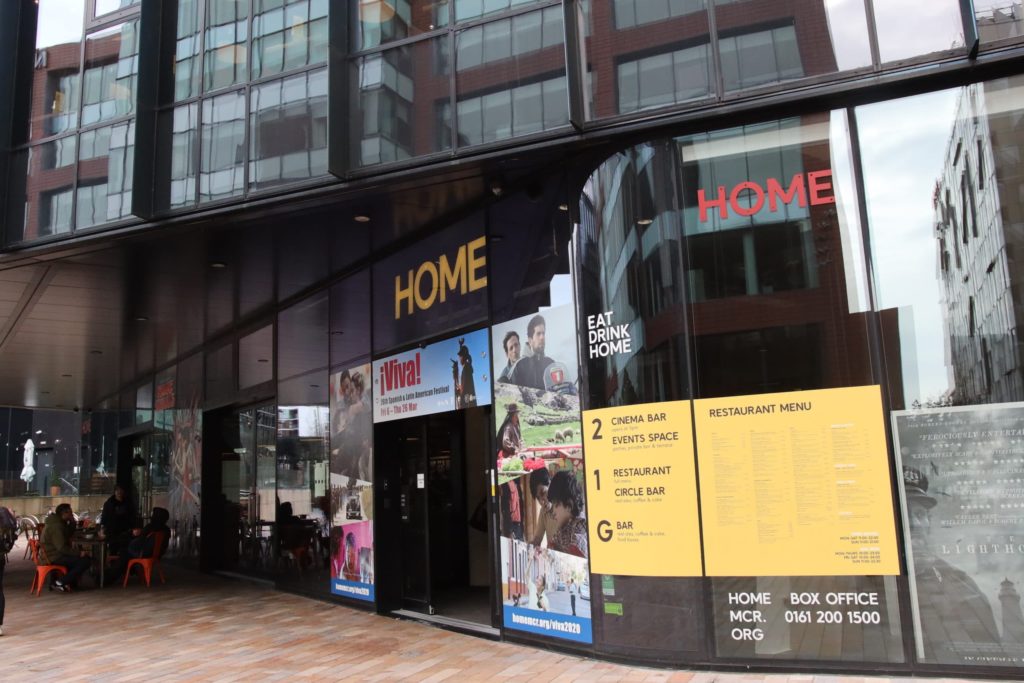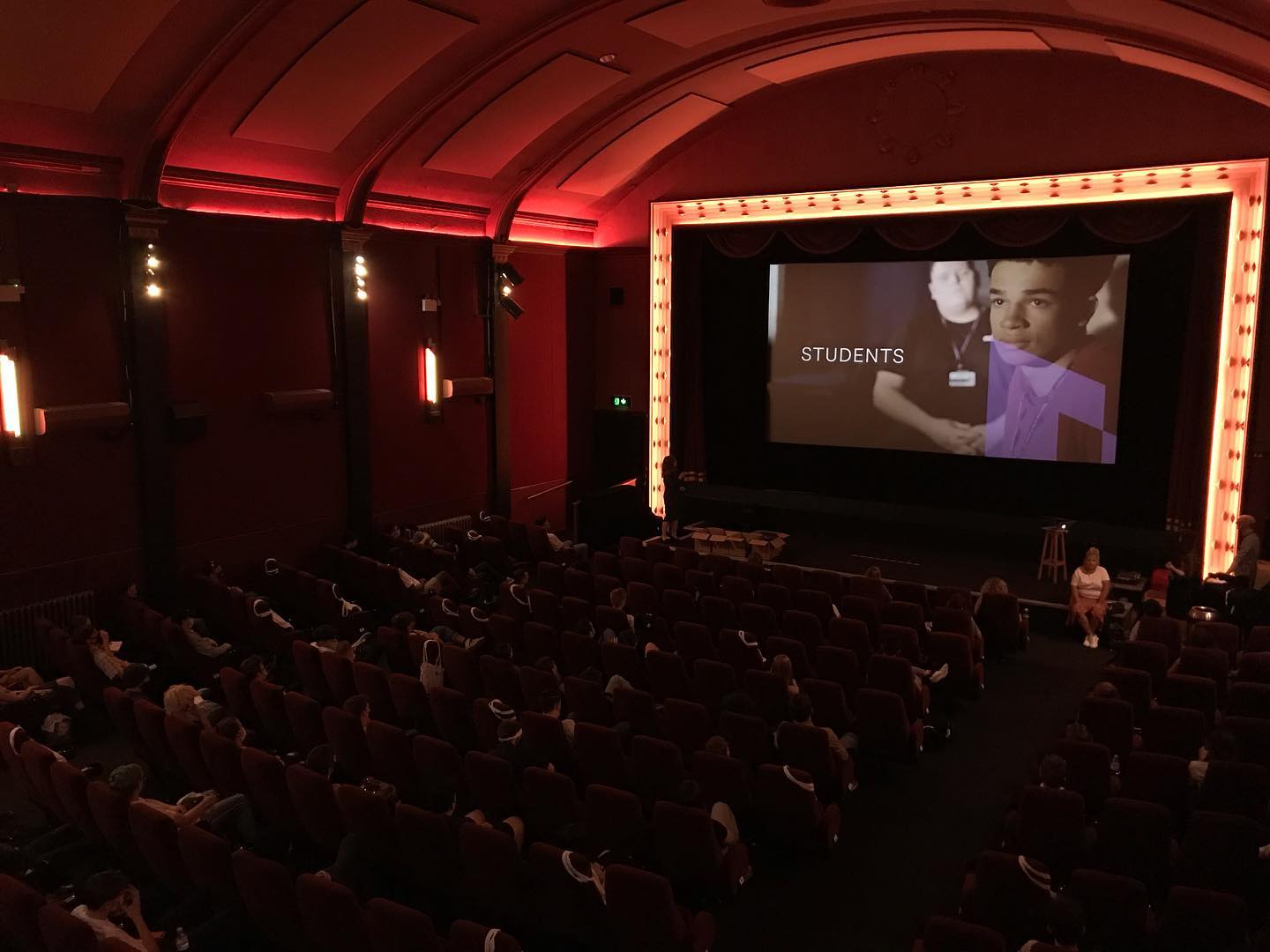Screen and Film School Manchester’s student blogger Chloe Bush compares the different student experiences between choosing private accommodation or student halls, discusses the various areas to live in Manchester with her fellow classmates, and shares her top tips for finding your new ideal home.
Figuring out where to live can feel like a daunting task, whether you’re moving out for the first time or you’re looking for somewhere for the next academic year. To make the process a little bit easier, I have used my own experiences to put together an article which will help you to find a place you’re proud to call home during your time at Screen and Film School.
Student Halls vs Private Accommodation – which to choose?
Two of the most common styles of accommodation in Manchester that you’re likely to come across are Student Halls or Private Accommodation. As someone who now has experience with living in both, I thought I would start off by briefly describing some of the differences of each style of living, in order to help you decide which you feel might be more suitable for you.
Student Halls
Students Halls are buildings which are specifically designed for hundreds of students to live in. They often feature an arrangement where students will live with up to 10 others in one flat, where everyone has their own bedrooms but the kitchen, living room area (if they have one) and bathrooms are shared. However, you can get en suite rooms and studio apartments within Student Halls too.

Features of Student Halls commonly include:
- Bills Included: Often, bills such as water, electric/gas (energy) and Wi-Fi/internet are included in the price that you pay for rent, and are unlikely to change throughout the year – meaning you’ll know from the start exactly what you’re budgeting for.
- Building Management Team: Student Halls tend to have a team who are involved in the running of the building. They’ll likely be continually on the premises, and can assist you by answering questions you might have about your accommodation, student life or the city; collecting and storing parcels for you and ensuring that maintenance issues are sorted out quickly.
- Social Areas and Activities: Whether you just want to chill out, or maybe play a board game or pool, Student Halls in Manchester commonly have social spaces within their premises which are designated places for you to hang out with your friends. Some Halls also have features such as cinema rooms, gyms, study areas for you to use, or might arrange social events, such as pizza parties, to encourage you to take a break from studying and to make friends with people where you live.
From my experience, moving into Student Halls during my First Year was a great first step in independent living – it meant that I was able to find my feet whilst living alone for the first time but without the pressures of needing to pay individual bills monthly and knowing that there was always staff in the building if I needed someone to talk to or faced any issues definitely positively impacted my transition into student life.
Private Accommodation
Private Accommodation, also known as Shared Housing, consists of houses or flats that are rented by landlords, through letting agents, privately, to a specific group of students. It’s similar to renting any house or flat – you’ll share a kitchen, living room and likely bathrooms with the other students living within the property, but have your own bedrooms, and full time students are exempt from paying council tax.

Features of Private Accommodation commonly include:
- Knowing your housemates: Whether you’re going to live with friends or people that you’ve met through the Screen and Film School Manchester Facebook Group for your academic year, a benefit of renting Private Accommodation that you don’t tend to get with Student Halls (unless you specifically request to live with someone) is that you’ll get to choose and know, or be able to get to know, who you’re living with prior to moving in with them.
- Homely and Cosy: Private Accommodation tends to have a cosier feel to it, which stems from the fact they’re actually laid out as flats/houses – living room/ garden spaces more common than with Student Halls, and facilities such as washing machines are commonly shared between the people within the House/Flat, rather than across the whole Halls – which can be a huge bonus in creating a space that feels like a home from home.
- Paying Bills: Bills being included in Private Accommodation is something that varies between landlords, some are and some are not. However, if they’re not, it can provide you with a good opportunity to approach different suppliers and sometimes get things cheaper, and, knowing how to pay bills is also a great life skill to have, setting you up for confident, independent living in the future.
From my Second Year experience living in Private Accommodation I have found that living with friends from Screen and Film School has made collaborating on projects easier, as we’re able to spend our free time creating plans to bring our cinematic visions to life, and having a private living room space just for us, that I didn’t have in Student Halls, provides the perfect space to have these project meetings or to unwind and watch our favourite films.
Note: This information all comes from my personal experiences – make sure you read the terms and conditions of your contract and confirm with the Student Accommodation style that you pursue that these features are involved in your specific accommodation, if you definitely want them to be, before signing anything.
Finding the area that’s right for you
Manchester is commonly known as a student city and, because of this, it has a range of accommodation options for varying budgets and requirements, across lots of different areas. From the City Centre, to Hulme, Rusholme, Fallowfield or Salford; whether you’re looking for a vibrant, energetic atmosphere or something a bit more chill: there’s somewhere that’s suitable for everyone. Take a look at these quotes, written by the experiences of some Screen and Film School Manchester students, which introduce and discuss the things they love about a few of the different areas that you might consider living.

Hulme
“The best thing about Hulme is the Hulme retail park which is perfect for your grocery shopping. Both Asda and B&M are good, affordable options for students and the park is in walking distance. Another great thing about Hulme is that it’s a really quiet area, lots of parks and schools so you its really comfortable and safe as opposed to other areas that I known for their nightlife. However, even if a night life is what you’re after, Hulme is just outside of the City area and most clubs are around a 20 minute walk from Hulme’s residential areas so walking to and from a club wouldn’t be a problem. As well as this the prices of the houses are all affordable compared to the city centre and other areas just outside the centre of Manchester, so Hulme is definitely a good option if you’re looking for something cheaper but comfortable.” Jack, Filmmaking Student
Rusholme
“The main thing I like about living in Rusholme is that although it isn’t the city centre, the transport links are still accessible and because it’s a bit further out, I end up going to other places around Manchester (Didsbury, Stockport, Fallowfield etc) that I probably wouldn’t have thought about if I wasn’t here. The bus into the city only takes around 20 minutes but I like the walk too as you get to walk through some nice parks and see some really interesting architecture.” Tom, Filmmaking Student
City Centre
“I have lived in/on the edge of the city centre for the past two years and I absolutely love it. I’m originally from a smaller, much more remote town, in the countryside, so being able to easily walk everywhere – from the shops, cafe’s and cinemas, to the theatres and Screen and Film School – is something that I really enjoy. The vibrancy, buzz and convenience of the city is something that I have fallen in love with, and, I have never personally felt that the city was too loud or overwhelming but that’s somewhat due to the nature of the areas within/around the city centre I have lived in too. I feel safe where I live and, even though it’s different to where I grew up, the city centre has definitely become a second home to me.” – Chloe, Filmmaking Student
Salford
“Where I live is really nice because it’s quite quiet – it’s just on the outskirts, so not too far away, and I can still walk into the city centre, but it’s still on one of the local bus routes which come regularly, takes about 15-20 minutes and only costs £2! The surrounding neighbourhood and the people within the local community are lovely – we live near a few schools, so it can be quite loud in the mornings with the schools runs but everyone is so nice and friendly which makes you feel really safe when you’re walking home. There are also a few local corner shops which are great. Personally, I prefer to be on the outskirts of town, rather than the city centre where everything happens, and I think the area of Salford I live in is very nice and safe.” – Monique, Filmmaking Student
Fallowfield
“I’m currently living in Fallowfield in a student house with three other people. I lived in the city centre in my first year and I’ve found that I much prefer living here. It’s a heavily student occupied area so you don’t lose that university living feel, I like to think of it as its own student village with a more homely feel. There are plenty of shops, restaurants and student bars all down one street and everything is in close proximity so you still get the busy feel but with quieter streets to live on. I really enjoy having my own house in an area like this as it makes me feel independent and more prepared for life after university.” – Keely, Filmmaking Student
Top Tips for Finding Your Ideal Home from Home
Figuring out where and when to begin, what you’re looking for and how to start narrowing down your accommodation options can seem pretty overwhelming at first, especially if it’s something that you’ve never done before. To help with this, I’ve put together a list of some of my best advice to assist you with your house hunting journey!

- Make a list of the features of your accommodation that are important to you and know what you’re willing to compromise on. Do you want to live within walking distance of Screen and Film School or are you happy to take a short bus/tram ride? Would you happily live with up to 6-7 other people, or would you prefer it just to be 2-3? Is it preferred if bills are included? Do you want your contract to be just for the academic year, for 12 months or longer? Whilst looking for somewhere to live, I found that asking myself questions like this helped to create a list of my priorities, which was a great first step to helping me figure out where to live. Once you know what aspects of a place are important to you and what you’re willing to compromise on (if you have to) it will be easier to figure out how suitable a place is for you.
- Carefully consider your budget. When calculating how much money you can afford to spend on renting somewhere to live, it’s important to consider all of the costs you might encounter throughout the year. This includes rent, bills (if they aren’t included in the rent), a deposit you’ll likely have to pay and any fees a letting agent might have, but also things like travel, food shopping, hobbies and social occasions. I’d highly recommend always budgeting slightly more money than you think you’ll need for things as it’s better to have money left over than fall short of what you need: the last thing you want is to miss out on a trip to the cinema with your friends because you haven’t budgeted enough to go.
- If you’re looking to move in with your friends or people you know, consider whether your lifestyles and criteria are going to be compatible. Whilst living with your friends for the first time is very exciting, it’s definitely worth having practical discussions with them, make sure you’re all on the same page, before you make such a big commitment. As someone who likes for their home to be a clean, calm place that I can relax in, I knew that I didn’t want to live with too many people or those who like to throw parties, because I knew that it wouldn’t have the best effect on my mental health, and I took this into consideration when talking to friends who I might want to live with during my Second Year. If you do find out that you’re looking for completely different accommodation styles, that’s totally okay too. It shouldn’t affect your friendship in any way: in fact, I sometimes see my friends that I don’t live with much more frequently than the ones that I do.
- Start booking viewings as soon as possible. It’s never too early to start looking for somewhere to live for the next academic year, and the best way to assess whether certain styles of accommodation are suitable for you to live is to look around them to get a feel for the environment in person. In my First Year, I was pretty adamant I didn’t want to live in Student Halls, but, after touring the place that I ended up living, I fell in love with it, and I could have missed out on the opportunity to live there if I hadn’t booked a viewing.
- Don’t rush the house hunting process. From my experience, I know that this can be much easier said than done – house hunting can be stressful and it’s tempting to want to commit to the first house that you see so that you don’t need to worry about it anymore. However, as this is going to be the place you come back to relax in, after a long day, it’s important to take the time to find a place that you know you’re going to feel happy living and, the more places that you view, the more confident you’ll become about what you like and what you don’t like in a place. So, make sure take the time to inspect places thoroughly (checking for signs of damp, mould, pests and poor insulation), make sure the accommodation meet your desired criteria (as previously detailed) and, when you do find the place you know is right, sign a contract as soon as possible to make sure that it’s yours.
Whilst there really is no one-size-fits-all approach to finding accommodation, hopefully this article has given you a bit more of an insight into the available accommodation options and some advice about where to start, to find the best place for you to live during your time at Screen and Film School Manchester.
Are you interested in being a part of the new legacy at Screen and Film School Manchester?
Sign up to one of our Open Days:
Find out more information on our courses by clicking below:



